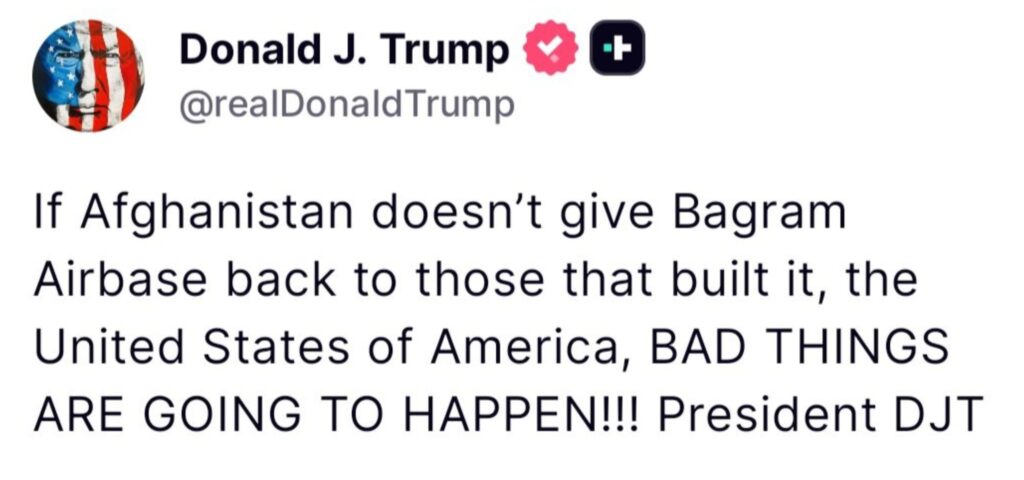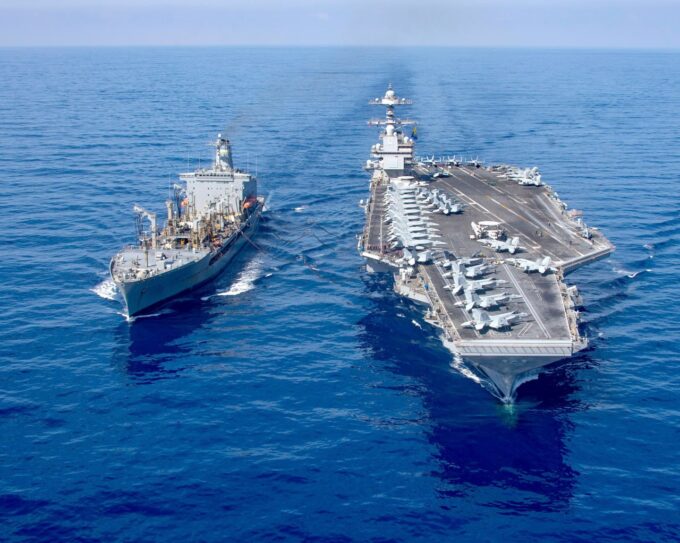U.S. President Donald Trump has warned Afghanistan that “bad things” will ensue if Kabul does not return control of Bagram Air Base to the United States. In a post on his Truth Social platform, Trump insisted that if Afghanistan does not hand back the base to “those that built it, the United States of America,” serious consequences will follow.
He noted that the U.S. has already signaled its interest in re‑acquiring the base, which was heavily used by American forces following the September 11, 2001 attacks. Trump said discussions are underway with Afghan representatives, though he was vague when pressed on the possibility of deploying troops to retake Bagram. “We won’t talk about that,” he told reporters. He added that he expected the base to be returned “soon, right away,” and warned that if Afghanistan fails to do so, they will “find out what I’m gonna do.”
Bagram, once the central hub for U.S. and NATO operations in Afghanistan, fell into Taliban hands after the 2021 U.S. military withdrawal and the collapse of the U.S.-backed Afghan government. Under U.S. control, the sprawling facility included not only runways and military infrastructure but amenities like fast‑food outlets and shops, and it housed a large detention complex.

Taliban authorities have expressed strong opposition to any revived U.S. presence in Afghanistan. Meanwhile, current and former U.S. officials caution that attempting to re‑occupy Bagram could be viewed internationally as a re‑invasion. They estimate that retaking and holding the base would require over 10,000 troops and deployment of advanced air defences to protect against both internal and external threats.
Even if a negotiated settlement were reached, securing Bagram would pose serious challenges: militant groups such as ISIS‑K and Al-Qaeda remain active in Afghanistan, and there is risk from missile threats, including from Iran. The issue underscores broader regional security dynamics, and raises questions about how U.S. ambitions intersect with Afghan sovereignty and the volatile environment of post‑withdrawal Afghanistan.












Leave a comment